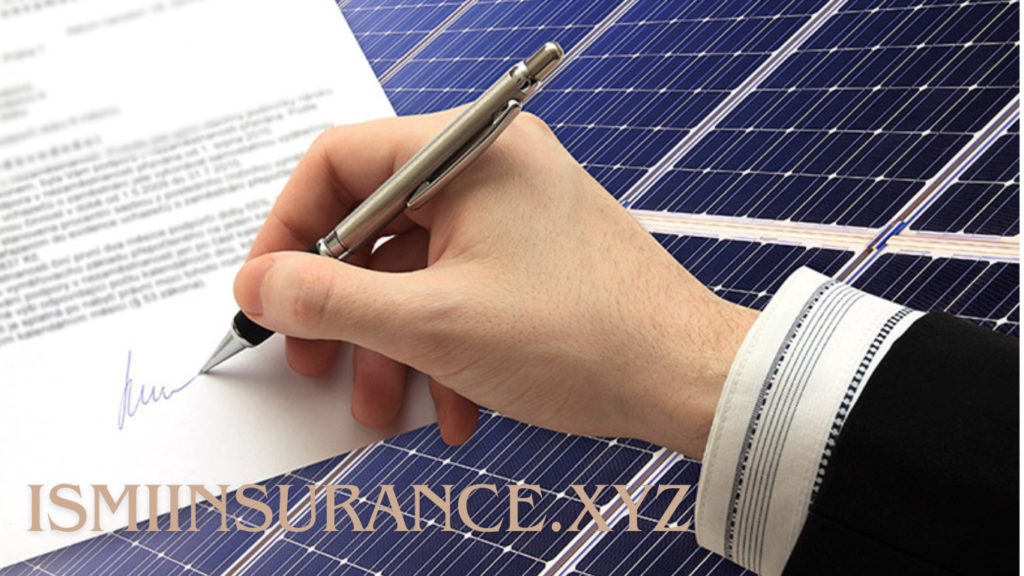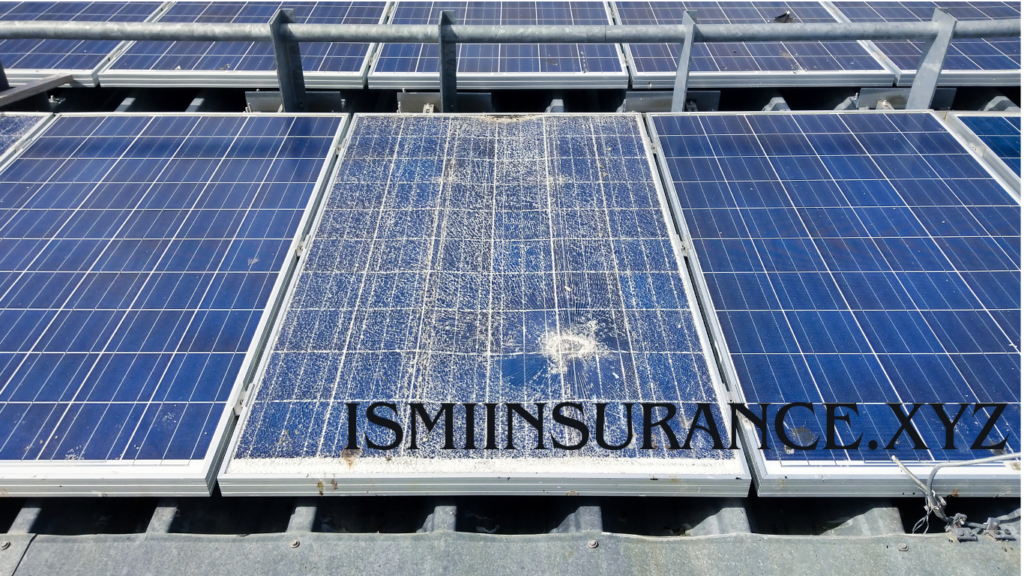Unveiling the Impact: Do Solar Panels Heighten Home Insurance Costs?
Introduction to Solar Panels and Home Insurance
Solar panels Unveiling the Impact: Do Solar Panels Heighten Home Insurance Costs? have emerged as a popular choice for homeowners seeking sustainable energy solutions. These photovoltaic systems harness sunlight to generate electricity, offering both environmental and financial benefits. However, as homeowners embrace solar technology, questions arise regarding its impact on home insurance coverage. Understanding the relationship between solar panels and home insurance is essential for informed decision-making.
Home insurance provides financial protection against various risks, including property damage, theft, and liability claims. Policies typically cover the structure of the home, personal belongings, and liability for injuries occurring on the property. However, the integration of solar panels introduces new considerations for homeowners and insurers alike. This article explores the intersection of solar panels and home insurance to shed light on potential implications for homeowners.
The Relationship Between Solar Panels and Home Insurance
- H1: Evaluating the Connection
- H2: Factors Influencing Insurance Premiums
H1: Evaluating the Connection the relationship between solar panels and home insurance is multifaceted. Installing solar panels can impact insurance premiums due to factors such as installation costs, maintenance requirements, and the perceived risk of damage or liability. Insurers assess these factors when determining premiums, which may vary based on individual circumstances and geographic location.
H2: Factor influencing insurance premiums is the cost of installing solar panels. While solar technology has become more affordable in recent years, initial installation costs can still be substantial. Insurers may consider the value of the solar equipment when calculating replacement costs in the event of damage or loss. Additionally, the type of solar panels installed, such as rooftop versus ground-mounted systems, can affect insurance rates.
Factors Affecting Home Insurance Premiums with Solar Panels

- H1: Installation Costs and Their Impact
- H2: Maintenance Considerations
- H3: Regional Insurance Variances
H1: Installation Costs and Their Impact of solar panels can influence home insurance premiums. The upfront investment required for solar panel installation may lead insurers to adjust coverage limits or premiums to account for the increased value of the property. Homeowners should consider how their investment in solar technology may affect their insurance needs and costs.
H2: Maintenance considerations also play a role in determining insurance premiums. Unveiling the Impact: Do Solar Panels Heighten Home Insurance Costs? While solar panels are relatively low maintenance, regular inspections and repairs may be necessary to ensure optimal performance. Homeowners should inquire about any maintenance requirements or warranties associated with their solar panels and consider how these factors may impact insurance coverage and costs.
H3: Regional Insurance Variances in premiums can also affect homeowners with solar panels. Factors such as climate, weather patterns, and local regulations may influence the perceived risk of solar panel damage or loss. Homeowners in regions prone to extreme weather events or natural disasters may face higher insurance premiums to offset the potential risks associated with solar panels.
Insurance Coverage for Solar Panels
- H1: Assessing Coverage
- H2: Considerations for Leased vs. Owned Panels
H1: Assessing Coverage When it comes for solar panels, homeowners should carefully review their existing policies to understand what is covered and any limitations or exclusions that may apply. Standard home insurance policies may provide coverage for solar panels as part of the dwelling coverage, but it’s essential to confirm this with your insurer.
H2: Considerations for Leased vs. Owned Panels In some cases, homeowners may need to purchase additional coverage or endorsements to ensure adequate protection for their solar panels. Factors such as the age and condition of the panels, as well as any upgrades or modifications, may impact coverage requirements. Homeowners should discuss their specific needs with their insurance agent or provider to determine the appropriate level of coverage for their solar panels.
Impact on Property Value and Insurance
- H1: Enhancing Property Value
- H2: Insurer’s Perspective on Risks
H1: Enhancing Property Value the installation of solar panels can have a positive impact on the value of a property. Solar energy systems are considered a desirable feature for many homebuyers, as they offer potential energy savings and environmental benefits. However, the impact of solar panels on property value may vary depending on factors such as the size and efficiency of the system, as well as market conditions.
H2: Insurer’s Perspective on Risks From an insurer’s perspective, solar panels may represent both opportunities and risks. While solar panels can reduce reliance on traditional energy sources and mitigate the risk of power outages, they also introduce new considerations for insurers. Factors such as the risk of damage from weather events, vandalism, or technological failures may influence insurers’ assessments of risk and pricing for properties with solar panels.
Risk Assessment and Mitigation
- H1: Analyzing Risks Associated with Solar Panels
- H2: Weather-related Risks
- H3: Technological Risks
H1: Analyzing Risks Associated with Solar Panels are subject to various risks that can impact their performance and longevity. Weather-related risks, such as hail, high winds, and extreme temperatures, pose a threat to solar panels’ structural integrity and efficiency. Hailstorms, in particular, can cause significant damage to solar panels, leading to costly repairs or replacements. High winds can also dislodge panels from their mounts, increasing the risk of damage or injury. Additionally, extreme temperatures can affect the performance of solar panels, reducing their efficiency and lifespan over time. Understanding these weather-related risks is crucial for homeowners to implement appropriate mitigation measures and ensure the long-term viability of their solar energy systems.
H2: Weather-related Risks solar panels are also susceptible to technological risks that can affect their functionality and reliability. Technical failures, such as inverter malfunctions or wiring issues, can disrupt the generation of electricity and require prompt repairs.
H3: Technological Risks cybersecurity threats pose a growing concern for solar panel systems connected to smart grid networks. Hackers may exploit vulnerabilities in the system’s software or communication protocols to gain unauthorized access or disrupt operations. Implementing robust cybersecurity measures, such as encryption protocols and intrusion detection systems, can help mitigate the risk of cyber attacks and safeguard the integrity of solar panel installations.
Claim Processes and Solar Panel Damage

- H1: Navigating Insurance Claims for Solar Panel Damage
- H2: Documentation Requirements
- H3: Claims Settlement Process
H1: Navigating Insurance Claims for Solar Panel Damage due to unforeseen events, homeowners may need to file insurance claims to cover the cost of repairs or replacements. Navigating the claims process for solar panel damage requires thorough documentation of the incident and adherence to the insurer’s requirements. Homeowners should document the extent of the damage, including photographs, invoices for repairs, and any relevant correspondence with contractors or manufacturers. Providing detailed documentation can expedite the claims process and ensure that homeowners receive timely reimbursement for covered damages.
H2: Documentation Requirements Once the necessary documentation is compiled, homeowners can initiate the claims settlement process with their insurance provider. This process typically involves submitting a claim form, along with supporting documentation, to the insurer for review. The insurer will assess the validity of the claim and determine the extent of coverage based on the terms of the policy.
H3: Claims Settlement Process, if the claim is approved, Unveiling the Impact: Do Solar Panels Heighten Home Insurance Costs? the insurer will provide compensation to the homeowner for the cost of repairs or replacements, minus any applicable deductibles. It’s essential for homeowners to review their insurance policy carefully and understand the coverage limits and exclusions related to solar panel damage to avoid any surprises during the claims process.
Case Studies and Real-Life Examples
- H1: Examining Case Studies of Homeowners with Solar Panels
- H2: Case Study 1: Impact of Severe Weather
- Case Study 2: Technological Failures
H1: Examining Case Studies of Homeowners with Solar Panels to provide insights into the real-world implications of solar panels on home insurance, let’s examine case studies of homeowners who have experienced various challenges and successes. In Case Study 1, we delve into the impact of severe weather on solar panel installations. One homeowner in a region prone to hailstorms faced significant damage to their solar panels during a severe weather event. Despite having insurance coverage, the homeowner encountered delays in claims processing and disputes over the extent of coverage for the damage. This case underscores the importance of proactive risk mitigation strategies and thorough insurance coverage to mitigate the financial impact of weather-related damage.
In Case Study 2, we explore the repercussions of technological failures on solar panel systems. A homeowner experienced a sudden outage in their solar energy production due to a malfunctioning inverter. Despite having a warranty for the equipment, the homeowner encountered challenges in obtaining timely repairs and reimbursement for lost energy production. This case highlights the need for homeowners to understand the warranty terms and technical support options available for their solar panels. Additionally, it underscores the importance of regular maintenance and monitoring to detect and address potential issues before they escalate into costly problems.
Regulatory and Legal Considerations
- H1: Legal Framework: Regulations Surrounding Solar Panels
- H2: Building Codes and Permitting Requirements
- H3: Zoning and Land Use Regulations
H1: Legal Framework, Regulations Surrounding Solar Panels the installation of solar panels is subject to various regulatory and legal considerations that homeowners must navigate to ensure compliance and mitigate potential risks. Building codes and permitting requirements govern the installation process, specifying structural and safety standards for solar panel systems. Homeowners should familiarize themselves with these regulations and obtain the necessary permits before commencing installation to avoid fines or legal disputes.
H2: Building Codes and Permitting Requirements and Zoning and Land Use Regulations also play a crucial role in determining the feasibility and placement of solar panels on residential properties. Local ordinances may impose restrictions on the size, height, and location of solar panel installations to preserve aesthetic, environmental, or safety considerations. Homeowners should consult with local authorities and review zoning ordinances to ensure compliance with land use regulations and avoid potential conflicts with neighbors or homeowners’ associations.
Zoning and Land Use Regulations
- H1: Insights from Insurance Companies on Solar Panel Coverage
- H2: Risk Assessment and Underwriting Practices
- H3: Policy Offerings and Endorsements
H1: Insights from Insurance Companies on Solar Panel Coverage Understanding insurance providers’ perspectives on solar panel coverage is essential for homeowners seeking comprehensive insurance solutions. Insurance companies employ various risk assessment and underwriting practices to evaluate the potential risks associated with solar panel installations. Factors such as the age and condition of the panels, geographic location, and local weather patterns may influence insurers’ decisions on coverage and pricing.
H2: Risk Assessment and Underwriting Practices and policy offerings and endorsements for solar panel coverage may vary among insurance providers, with some offering specialized policies tailored to the unique risks and needs of homeowners with solar panels. Homeowners should compare insurance quotes and policies from multiple providers to ensure they find the coverage options that best meet their needs and budget.
H3: Policy Offerings and Endorsements additionally, Unveiling the Impact: Do Solar Panels Heighten Home Insurance Costs? they should inquire about available endorsements or riders that provide additional protection for solar panels against specific risks, such as mechanical breakdowns or loss of income due to system failures.
Consumer Experiences and Insights
- H1: Homeowners’ Experiences with Insuring Solar Panels
- H2: Satisfaction with Coverage and Claims Process
- H3: Challenges and Lessons Learned
H1: Homeowners’ Experiences with Insuring Solar Panels Gaining insights from homeowners who have firsthand experience with insuring solar panels provides valuable perspectives for those considering similar investments. Many homeowners report satisfaction with their insurance coverage for solar panels, citing peace of mind knowing their investment is protected against unforeseen risks. Additionally, positive experiences with the claims process, including prompt settlements and responsive customer service, contribute to homeowners’ overall satisfaction with their insurance providers.
H2: Satisfaction with Coverage and Claims Process However, Unveiling the Impact: Do Solar Panels Heighten Home Insurance Costs? some homeowners have encountered challenges and lessons learned when insuring solar panels. Issues such as disputes over coverage limits, delays in claims processing, and unexpected exclusions have left some homeowners feeling frustrated and disillusioned.
H3: Challenges and Lessons Learned and these experiences highlight the importance of thorough research, Unveiling the Impact: Do Solar Panels Heighten Home Insurance Costs? clear communication with insurers, and proactive risk management to mitigate potential conflicts and ensure adequate protection for solar panel investments.
Environmental Impact and Insurance Implications
- H1: Environmental Benefits of Solar Panels
- H2: Reduction of Carbon Footprint
- H3: Contribution to Renewable Energy Goals
H1: Environmental Benefits of Solar Panels offer significant environmental benefits, including the reduction of carbon emissions and the promotion of renewable energy sources. By harnessing sunlight to generate electricity, solar panels help decrease reliance on fossil fuels and mitigate the harmful effects of greenhouse gas emissions on the environment. Homeowners who invest in solar panels contribute to global efforts to combat climate change and transition to a more sustainable energy future.
H2: Reduction of Carbon Footprint from an insurance perspective, the environmental impact of solar panels may influence insurers’ risk assessments and pricing strategies. Insurers may view properties with solar panels favorably due to their reduced environmental footprint and lower risk of carbon-intensive energy sources.
H3: Contribution to Renewable Energy Goals and Additionally, some insurance companies offer incentives or discounts for homeowners with solar panels as part of their commitment to promoting environmentally friendly practices. By aligning insurance incentives with environmental goals, insurers can encourage more homeowners to invest in renewable energy technologies and contribute to a greener planet.
Contribution to Renewable Energy Goals
- H1: Anticipated Changes in Solar Panel Technology and Insurance
H1: Anticipated Changes in Solar Panel Technology and Insurance the future of solar panels and home insurance is shaped by ongoing technological advancements and industry trends. Innovations in solar panel technology, such as improvements in efficiency and durability, are expected to drive increased adoption among homeowners. As solar panels become more affordable and accessible, insurers may need to adapt their underwriting practices and coverage offerings to accommodate the changing landscape.
Anticipated Changes in Solar Panel Technology and Insurance
- H1: Recapitulation of Main Points
- H2: Impact of Solar Panels on Home Insurance
H1: Recapitulation of Main Points In summary, the integration of solar panels into residential properties can have significant implications for home insurance costs and coverage. Factors such as installation costs, maintenance requirements, and regional variances influence insurance premiums for homeowners with solar panels. Understanding the terms and coverage limits of insurance policies is crucial for homeowners to ensure adequate protection for their investment in solar technology.
H2: Impact of Solar Panels on Home Insurance implementing risk mitigation strategies, such as regular maintenance and proactive communication with insurers, can help homeowners navigate the complexities of insuring solar panels effectively. Looking ahead, ongoing advancements in solar panel technology and changes in insurance products and services will continue to shape the relationship between solar panels and home insurance.
Certainly, here are 10 FAQs related to the topic “Do Solar Panels Increase Home Insurance Costs?”:
- What factors influence insurance premiums when installing solar panels?
- Factors such as the value of the solar equipment, installation costs, maintenance requirements, and regional variances can influence insurance premiums for homeowners with solar panels.
- Are there any additional coverage options specifically for solar panels?
- Some insurance companies offer specialized coverage options or endorsements for solar panels, providing additional protection against risks such as mechanical breakdowns or loss of income due to system failures.
- How does the installation of solar panels affect my existing home insurance policy?
- Installing solar panels may impact your existing home insurance policy by increasing coverage limits or premiums to account for the added value of the solar equipment and potential risks associated with its installation.
- Do leased solar panels have different insurance requirements compared to owned panels?
- Yes, homeowners who lease solar panels may have different insurance requirements compared to those who own them outright. It’s essential to review the leasing agreement and discuss insurance responsibilities with the leasing company.
- What happens if my solar panels sustain damage due to weather events or accidents?
- In the event of damage to solar panels, homeowners can file insurance claims to cover the cost of repairs or replacements. The claims process typically involves documenting the extent of the damage and submitting a claim form to the insurer for review.
- Will installing solar panels affect my home’s resale value?
- Installing solar panels can enhance your home’s resale value by making it more attractive to eco-conscious buyers and potentially reducing energy costs. However, the impact on resale value may vary depending on factors such as the size and efficiency of the solar system and market conditions.
- Can I negotiate with my insurance provider for lower premiums after installing solar panels?
- It’s possible to negotiate with your insurance provider for lower premiums after installing solar panels by demonstrating the reduced risk of certain perils, such as fire or theft, associated with the use of solar energy.
- Are there any tax incentives or rebates available for homeowners who install solar panels?
- Yes, many governments offer tax incentives, rebates, or other financial incentives to encourage the installation of solar panels. These incentives can help offset the initial cost of installation and may be available at the federal, state, or local level.
- Do solar panels increase the risk of fire or other hazards to my home?
- While solar panels themselves are not inherently dangerous, improper installation or maintenance can increase the risk of fire or other hazards. It’s essential to hire qualified professionals for installation and adhere to recommended maintenance practices to minimize risks.
- How can I ensure I have adequate insurance coverage for my solar panels? To ensure you have adequate insurance coverage for your solar panels, review your existing home insurance policy to understand coverage limits, exclusions, and any additional endorsements or riders needed. Consider consulting with your insurance provider to address any questions or concerns specific to insuring solar panels.
Conclusion:
- The integration of solar panels into residential properties can indeed impact home insurance costs and coverage. The decision to install solar panels represents a significant investment aimed at reducing energy costs, decreasing carbon emissions, and contributing to a more sustainable future. However, homeowners must approach this decision with careful consideration of its implications for insurance.
- The installation of solar panels can affect home insurance premiums due to various factors such as installation costs, maintenance requirements, and regional variances. Insurers assess these factors when determining premiums, which may result in adjustments to coverage limits or premiums to account for the added value and potential risks associated with solar equipment.
- Despite potential increases in insurance costs, homeowners can take proactive steps to mitigate risks and ensure adequate protection for their solar investment. This includes thoroughly understanding policy terms and coverage limits, implementing risk management strategies, and communicating effectively with insurers to address any questions or concerns.


